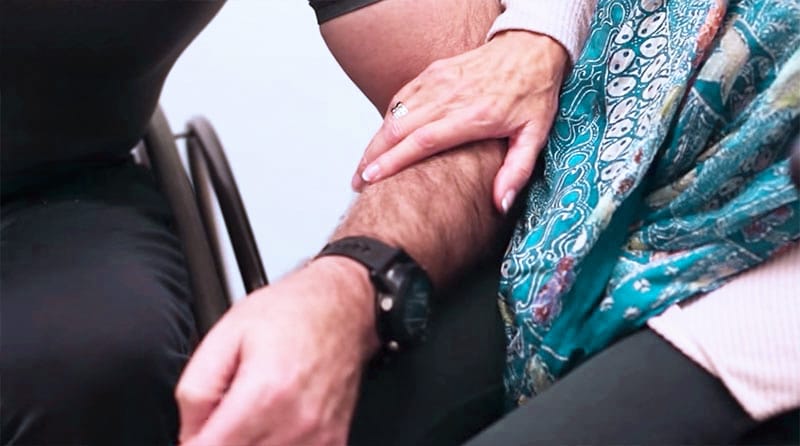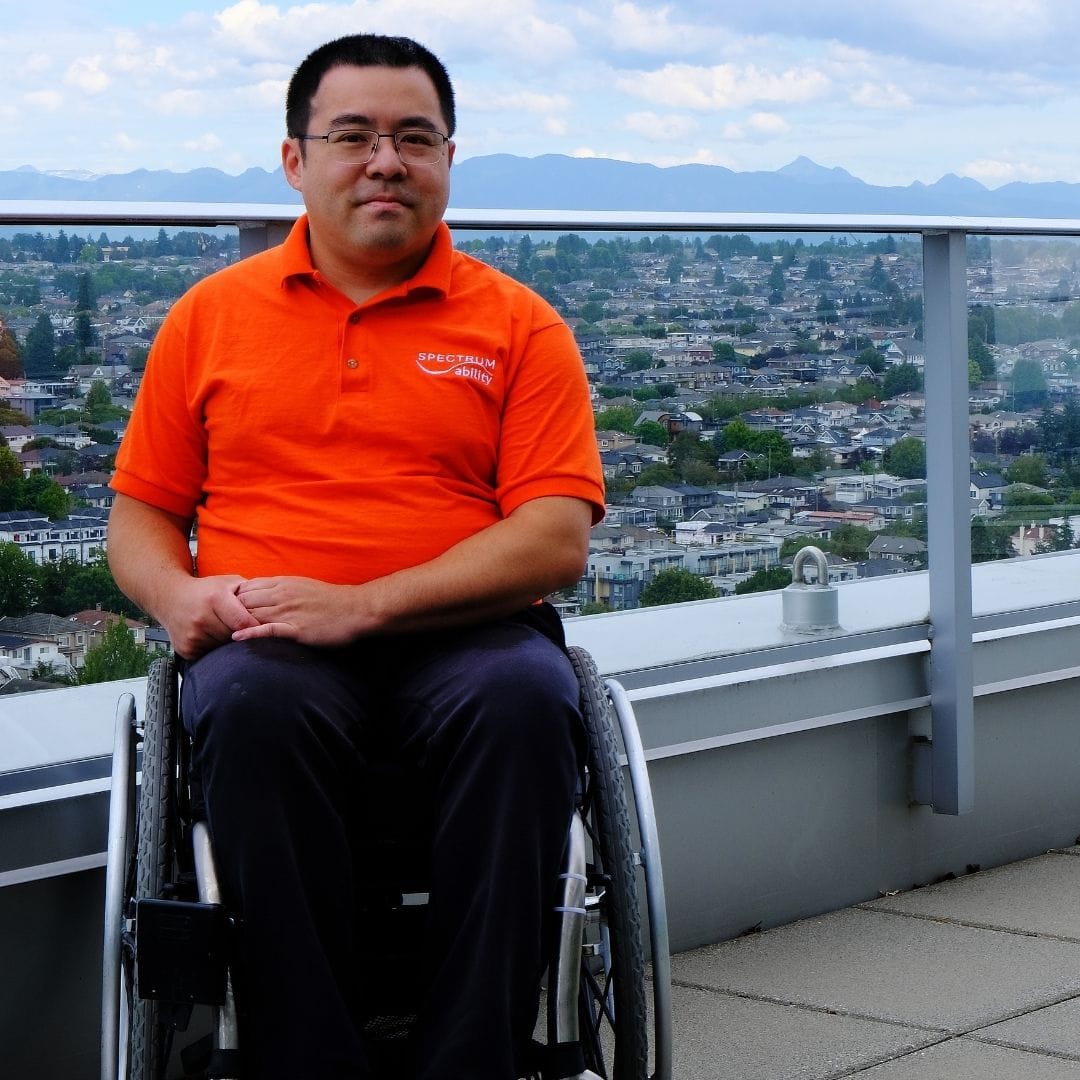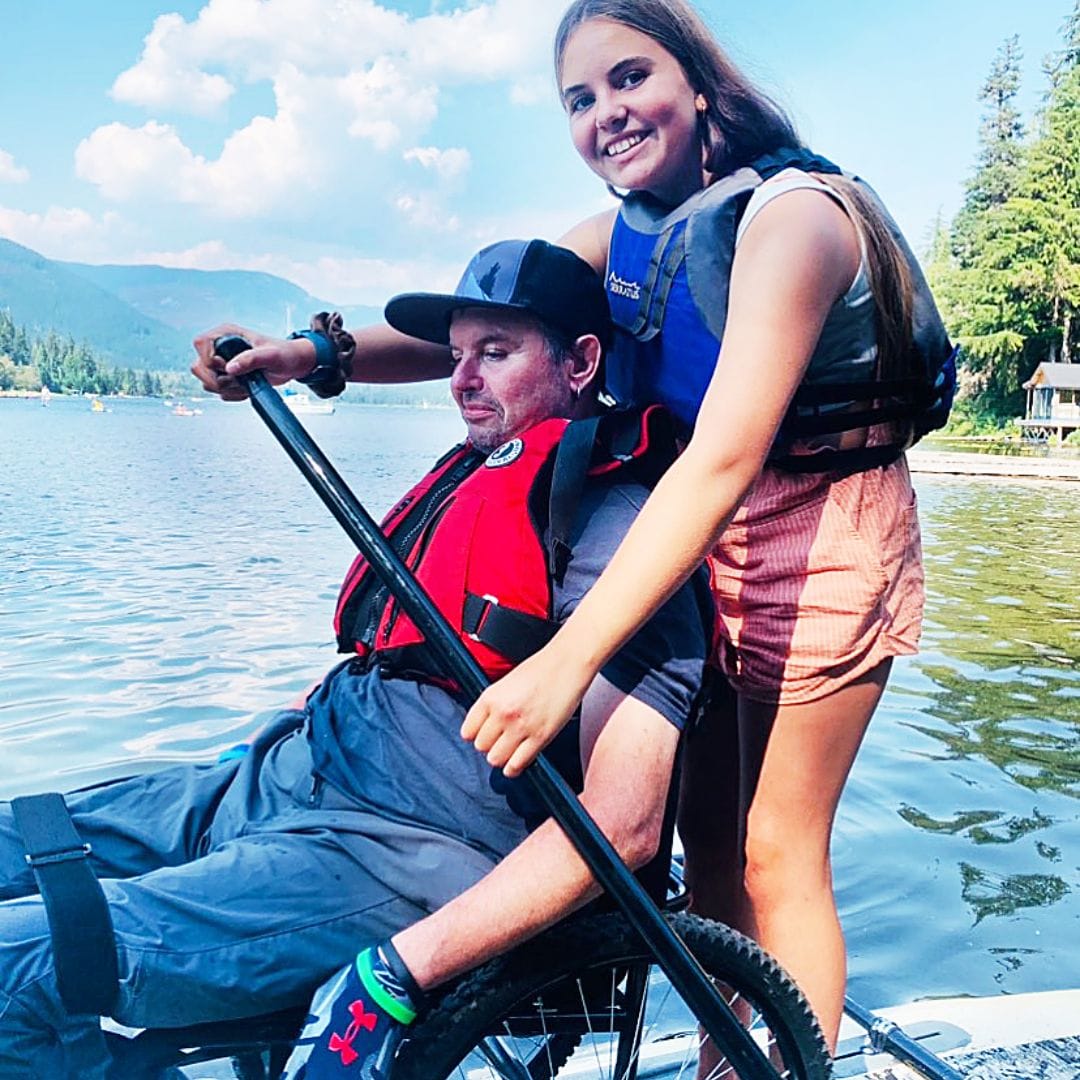Voulez-vous couchez avec moi, ce soir? Yes, sex is a universal language. But while getting a partner interested may be easy, when it comes to explaining how our SCI and bladder factors into the passion, many of us are at a loss for words. We asked two SCI BC Peers—one male and one female—to take us through the ins and outs of sex, SCI and catheterization. (Spoiler alert: It’s totally sexy!)

HE SAID
I broke my back as a young man. At only 20 years old, I was starting my life over after a T12 incomplete lesion. I had three years of rehabilitation and then I got down to business.
Before 20, my sex life was limited to friends and girlfriends. And, after my injury, bladder inconveniences meant that I didn’t have enough self-esteem to engage and approach a lady. Little by little, I learned to manage my bladder using an external condom catheter, but I still felt I had to hide my urine bag around women I was dating. This limited my sexual intimacy.
My breakthrough came when I met my current partner! I used to empty my bladder while lying in bed, which was hard on my love life. But when I learned intermittent catheterization, it was much better. Here are my top tips for keeping things sexy, confident and in control:
Set the right conditions.
In my experience, if you want to play with a partner, avoid alcohol. And remember: you’re inclined to urinate more in a cold place. Set the scene in a warm place to ensure things can really heat up without interruptions.
Get in the mood.
To be mentally ready is a very important part of sweet love play. Get in the mood for love by exchanging lovely and erotic words, or start with kissing and touching.
Mind your bladder.
Check your bladder pressure from time to time. I find emptying my bladder using a catheter is much better than via a urinal condom—you have enough time for romance without the dreaded overflow issues. For me, bowel wasn’t as important as bladder for sexual intimacy.
Be open.
Sex should not be taboo—for able-bodied people or for people living with disabilities. Education can be the most vital part of a sexual relationship for people with disabilities, especially if one side is able-bodied. Communicate with your partner so you can both know what to expect, then explore and enjoy!
Try something new.
Due to the lack of a complete sensory system in people with SCI and related physical disabilities, you may need to concentrate and stimulate your brain to reach orgasm. Of course, the sensations and results are different compared to those in a completely able body—but they’re not necessarily worse! Learn to tune into your entire body and find the pleasure centers that work for you.

SHE SAID
Bladder function was the very last thing I would have thought of when I imagined how I’d know I’d found the guy for me. In fact, it was the last thing I ever wanted to share with anyone and the one thing I was most ashamed of—that my tiny spazzy bladder sometimes has a mind of its own.
When things started to get serious, I felt like I had to share how things were different for me in the plumbing department— God forbid there be any unwelcome surprises. My man’s response? “Oh, I looked it up online already. That stuff doesn’t matter to me. Now where were we?” was what sealed the deal. Handsome, funny as hell AND mature and understanding about real-life para stuff? Check, check, double check.
What helped him was knowing that I was confident in being able to manage my bladder function in a way that doesn’t really impact our lives that much. Here are my tips to getting confident—so sex can be sexy:
Be clean.
It goes without saying, but being clean goes a long way toward being confident, and means I’m better able to respond on the spur of the moment. By paying a lot of attention every day to keeping my skin clean and healthy, and to using clean technique when catheterizing, I can focus on sexy times.
Be confident.
Know your system. Take the time to understand how different beverages and foods affect your bladder, and how you can respond effectively. Good for you for drinking tons of fluids every day! But when you’re anticipating a date or some Netflix ‘n’ Chill, maybe pull back a bit on the fluids an hour or two before.
Be prepared.
Even if you never have to use it, think of what to do in case of an accident or problem when you’re getting intimate. I keep a spare few catheters in my car, my backpack and at work, in case my regular stash is used up.
Be smart.
Know what tool works for what job, so to speak. Smaller catheters slip discreetly into a bag or pocket of your hottest outfit, and often can save you having to carry around extra supplies. Longer catheters or all-in-one systems are excellent if you have to make do with less-than-accessible bathrooms.
Be proud.
Above all, your date will take their cue from your own attitude toward your condition. Be factual, be confident, and above all, be yourself!
The above blog content was sponsored by Coloplast. To learn more about how intermittent catheterization could make a different in your life, visit coloplast.ca.



